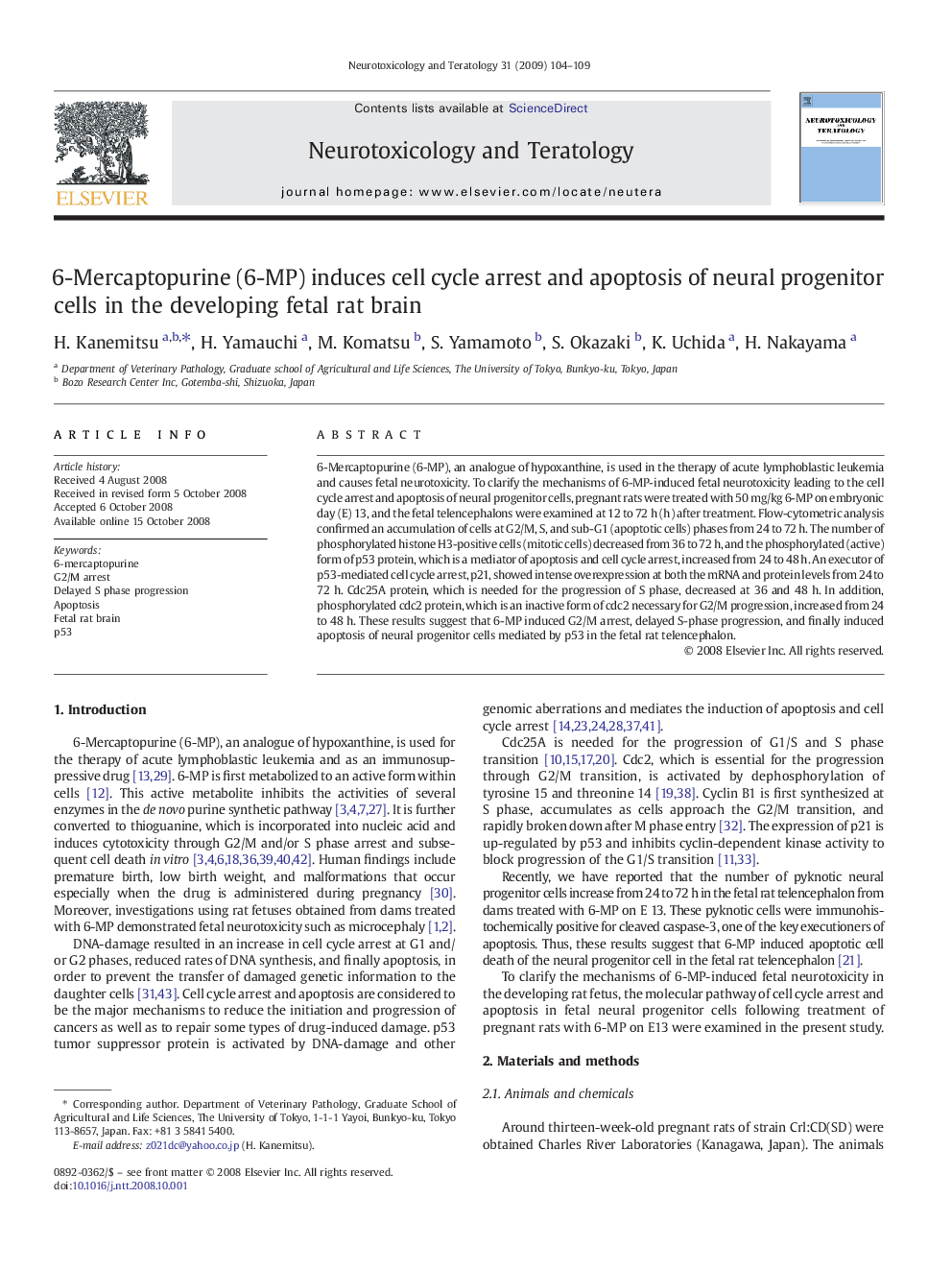| کد مقاله | کد نشریه | سال انتشار | مقاله انگلیسی | نسخه تمام متن |
|---|---|---|---|---|
| 2591664 | 1131821 | 2009 | 6 صفحه PDF | دانلود رایگان |
عنوان انگلیسی مقاله ISI
6-Mercaptopurine (6-MP) induces cell cycle arrest and apoptosis of neural progenitor cells in the developing fetal rat brain
دانلود مقاله + سفارش ترجمه
دانلود مقاله ISI انگلیسی
رایگان برای ایرانیان
کلمات کلیدی
موضوعات مرتبط
علوم زیستی و بیوفناوری
علوم محیط زیست
بهداشت، سم شناسی و جهش زایی
پیش نمایش صفحه اول مقاله

چکیده انگلیسی
6-Mercaptopurine (6-MP), an analogue of hypoxanthine, is used in the therapy of acute lymphoblastic leukemia and causes fetal neurotoxicity. To clarify the mechanisms of 6-MP-induced fetal neurotoxicity leading to the cell cycle arrest and apoptosis of neural progenitor cells, pregnant rats were treated with 50Â mg/kg 6-MP on embryonic day (E) 13, and the fetal telencephalons were examined at 12 to 72Â h (h) after treatment. Flow-cytometric analysis confirmed an accumulation of cells at G2/M, S, and sub-G1 (apoptotic cells) phases from 24 to 72Â h. The number of phosphorylated histone H3-positive cells (mitotic cells) decreased from 36 to 72Â h, and the phosphorylated (active) form of p53 protein, which is a mediator of apoptosis and cell cycle arrest, increased from 24 to 48Â h. An executor of p53-mediated cell cycle arrest, p21, showed intense overexpression at both the mRNA and protein levels from 24 to 72Â h. Cdc25A protein, which is needed for the progression of S phase, decreased at 36 and 48Â h. In addition, phosphorylated cdc2 protein, which is an inactive form of cdc2 necessary for G2/M progression, increased from 24 to 48Â h. These results suggest that 6-MP induced G2/M arrest, delayed S-phase progression, and finally induced apoptosis of neural progenitor cells mediated by p53 in the fetal rat telencephalon.
ناشر
Database: Elsevier - ScienceDirect (ساینس دایرکت)
Journal: Neurotoxicology and Teratology - Volume 31, Issue 2, MarchâApril 2009, Pages 104-109
Journal: Neurotoxicology and Teratology - Volume 31, Issue 2, MarchâApril 2009, Pages 104-109
نویسندگان
H. Kanemitsu, H. Yamauchi, M. Komatsu, S. Yamamoto, S. Okazaki, K. Uchida, H. Nakayama,